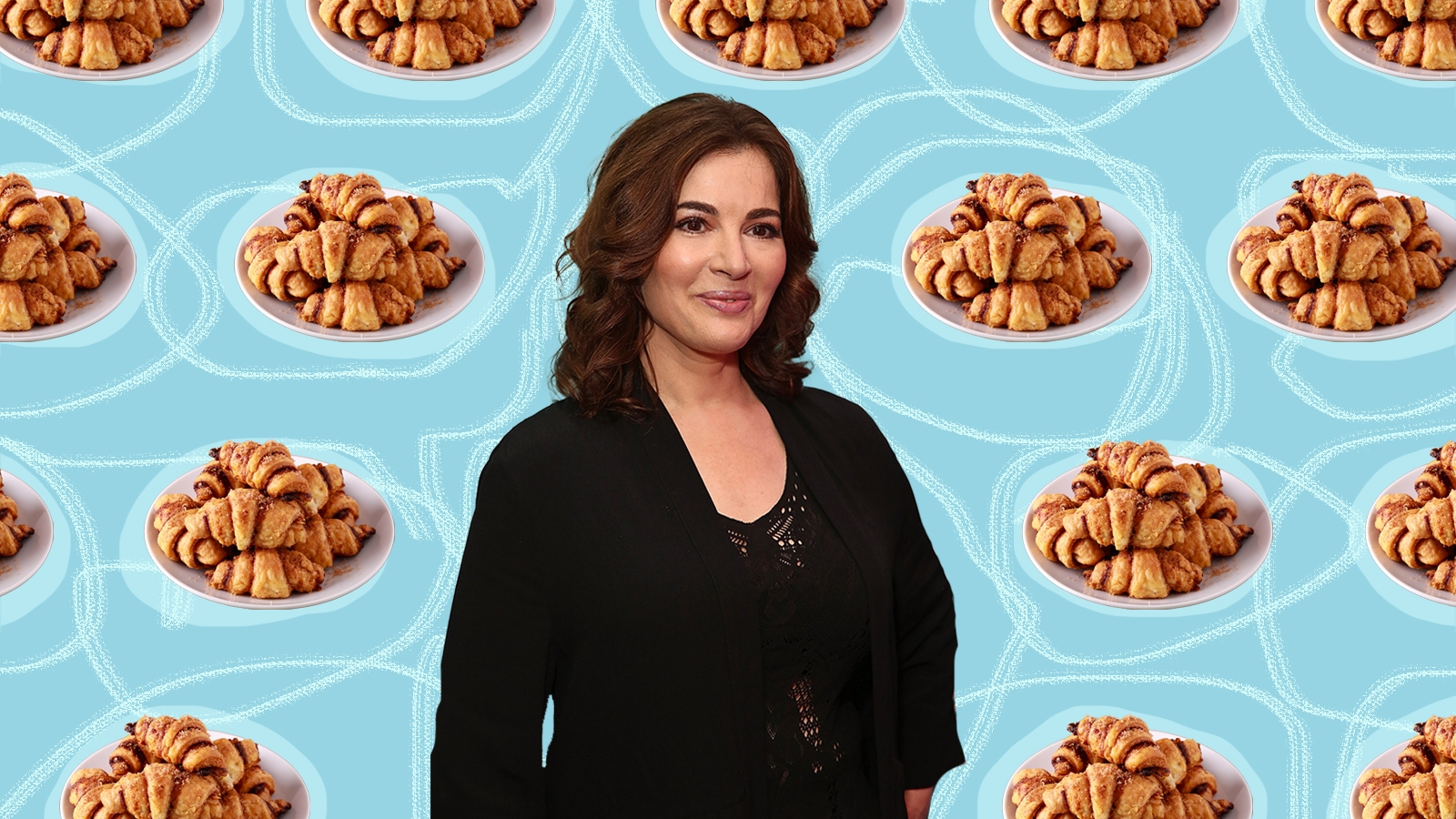It should come as no surprise that Nigella Lawson, who nicknamed her microwave the mee-cro-wah-vay and regularly refers to pomegranate seeds as “ruby jewels,” has her own name for rugelach: scuffles.
“Scuffles,” the British television cook and proclaimed food writer explains in a recent YouTube recipe tutorial, “is the really delightful American name for an even more delightful Ukrainian pastry, rohalyky. Now if you’ve ever encountered rugelach, you’ll know what they are, but think like doll’s-house-sized croissants.”
So much to unpack here.
As a Brit, I regularly have to turn to my North American colleagues for insight into the food habits and psyche of those across the pond, but only a few had heard of scuffles. Hmm. Further research online revealed that scuffles are a fairly popular Canadian Christmas pastry. A rugelach by any other name would taste as sweet, I concluded, and moved on.
The Nosher celebrates the traditions and recipes that have brought Jews together for centuries. Donate today to keep The Nosher's stories and recipes accessible to all.
… But not very far.
I was as thrown by the term “scuffles” as I was by Nigella’s pronunciation of rugelach, with its long “oo” like in “arugula,” which is different to the way it’s typically pronounced in the U.K.: rog-a-lach. Ultimately, I reasoned that we’re probably all pronouncing it wrong and there was no need to be petty.
Regional differences resolved, I whiled away a happy hour researching the origins of rugelach and their relationship to Ukranian rohalyky. Turns out, they’re essentially the same pastry, which has long been enjoyed across Eastern Europe by non-Jews and Jews, who called them “rugelach” in Yiddish.
Finally, I addressed Nigella’s description: “doll’s-house-sized croissants,” concluding it’s a bit of a stretch given that 1) her recipe does not call for a laminated dough, 2) you rarely come across cinnamon croissants and 3) neither rohalyky nor rugelach are French. Later in the video, Nigella likens her scuffles to “miniature armadillos,” which if you squint, or live inside Lawson’s kitschy brain (and how I often wish I did), is much more plausible.
Still with me? (Fellow Virgos, I know you are.) Time to dissect Nigella’s recipe, which you can find on the website of upmarket British online grocery store, Ocado.
In a pleasant turn of events, I have few complaints. The scuffles are easier and simpler than most rugelach recipes I’ve come across; on the video tutorial, Nigella even makes the pastries by hand, no mixer required. And you could argue that Nigella’s scuffles are a gratifying hybrid of American- and Isreali-style rugelach. Like Israeli rugelach, she adds yeast to her dough — but unlike the babka-esque Israeli dough, hers doesn’t need to rise. Like American rugelach, she enriches her dough, calling for sour cream rather than the typical cream cheese.
And then, in true Nigella style, she ever-so casually turned my world upside down.
After chilling for an hour or two, ’twas time to roll out the dough — but not in flour. No, in a technique that Lawson correctly calls “fascinating and revelatory,” she rolls out each quarter of dough in cinnamon sugar.
“Geometrists, please turn away because I’m going to describe this as a circle,” Nigella quips as she displays a sparkling disc encrusted in warm, scented sugar (I imagine she might say), which she then cuts, pizza-style, into small triangles (Nigella, use a pizza cutter not a knife, it’s much easier!), rolls up into “enchanting” pastries that may or may not resemble “teeny-tiny croissants” (see above), and bakes.
Having told us her recipe feeds a crowd (64 scuffles, to be exact), which I think we can all agree is very Jewish, Nigella then recommends serving the pastries with ice cream, which is… not very Jewish.
Sadly, as with the entire Ocado YouTube series, we do not get to see Nigella eating a scuffle, nor even sneaking into the kitchen in the middle of the night in a silk nightgown to snatch a couple from the jar. But in the absence of a television show (how much longer must we wait for you to grace our screens once again, Nigella?), this will have to do.
I’ll pass on the ice cream but — just as I always cover my rising bread dough with a leopard-print shower cap and double-butter my toast (once when the toast is warm, so it melts; once when the toast is a little cooler, so it coats the surface) — I shall, forevermore, roll out my rugelach dough in cinnamon sugar, just like Nigella does.



